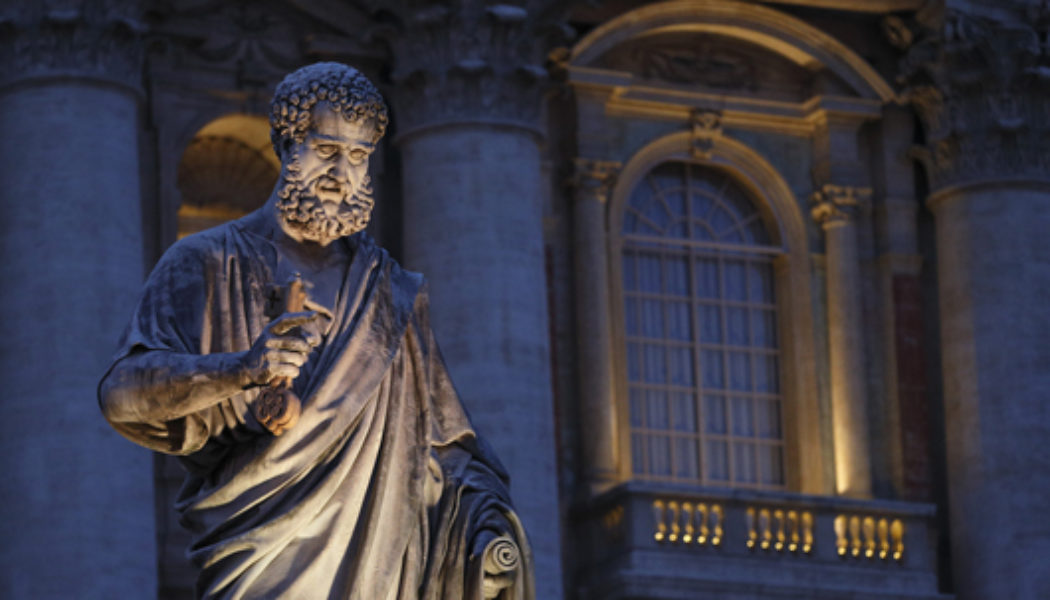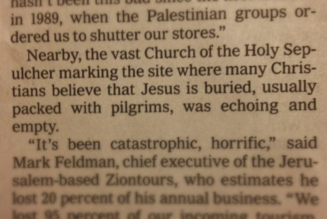
Two developments—both entirely foreseeable, one so easily avoidable as to be in essence an unforced error—are making the already improbable management of the Fiducia supplicans fiasco almost entirely impossible.
The first is the reported influx of requests for papal blessings on parchment sheets for same-sex couples. Italy’s Il Messaggero newspaper had the story over the weekend.
On paper, it oughtn’t be too difficult to turn them down. Fiducia supplicans, after all, countenances clerics granting unscripted blessings to different sorts of couples who “spontaneously” ask for them in various pastoral situations.
In order to obtain one of the parchments, one must provide the names of the persons or the family to receive the blessing and the reason or occasion for which it is being sought. Folks may request these blessings for marriages, ordinations, wedding anniversaries, ordination anniversaries and jubilees, religious professions and their various anniversaries and jubilees, baptisms, confirmations.
Strictly speaking, the blessings—and the parchments that attest them—are for milestone occasions in the life of a person or a couple. Birthdays are countenanced as a reason for requesting a papal blessing, too. The office of the papal almoner handles the business, and they’re pretty careful, with good reason. You’ll find (probably fake) papal blessing parchments hanging in small Roman businesses and even offices from time to time.
There may be a little wiggle room and occasionally a little fudging, but in any case a written request for an official document really stretches the meaning of “spontaneous” and requires at least a little scrutiny of circumstance beyond what Fiducia supplicans considers appropriate for the sorts of blessings it appears to allow.
In the real world, however, the requests either from same-sex couples or on their behalf create a multifaceted and frankly thorny problem of optics, interpretation, and application.
Basically, it puts the pope between a rock and a hard place.
He can’t refuse them without appearing stingy and legalistic—“rigid” is a word for it—but he can’t grant them without violating both the letter and the spirit of the very declaration that created the conundrum in the first place.
The second development is part of Fernandez’s very much sui generis charm offensive in the wake of Fiducia suplicans.
Almost from the get-go, Fernandez has tried to downplay the depth and breadth of resistance to his blessing scheme, giving the impression he was more than a little surprised by the cold reception it received and nonplussed by the vehemence of the pushback.
Excerpts released in anteprima from an interview Fernandez granted to Germany’s Die Tagespost—the full text of which is due to be published Thursday, 4 January 2024—have Fernandez calling Fiducia supplicans, “a pastoral response that everyone could accept, albeit with difficulty.”
The reality is that the worldwide reaction—whether it be the overreach of enthusiastic response from activist clerics and occasionally whole conferences, or the battle-ready resistance from broad swathes of the global south and several historically Catholic quarters of the Old World—lays bare how unworkable is the “pastoral” solution Francis has proposed.
The coming kerfuffle over parchment only drives the point home.
Die Tagespost’s sneak preview also quotes Fernandez as saying, “[Fiducia supplicans is] a clear answer that bears the Pope’s signature.” Saying does not make it so. Anyone who has been either an editor or a teacher will have told students and writers that “clear to me” is not necessarily the same as “clear” tout court.
The corollary is that, when they find themselves having to insist that something they’ve said or written is clear, the reason behind the need for such insistence is often that it isn’t.
“It is not the answer that two or three countries would like to have,” Die Tagespost also has Fernandez saying of Fiducia supplicans.
While it is strictly true—if there are a dozen or fifteen or fifty or more jurisdictions spread over every habitable continent displeased with the document, then there are two or three countries unhappy with it—that statement really does understate the business.
“Immediately following the publication of [Fiducia supplicans],” Cardinal Fridolin Ambongo of Kinshasa—who is the president of the African bishops’ continental umbrella conference, SECAM and a member of the C9 Council of Cardinals—told Vatican Media in a broad-ranging end-of-year interview published on 31 December 2023, “there was a reaction of anger and disappointment from our African faithful.”
“I myself have received many messages from our faithful wondering if this document was signed by Pope Francis,” Ambongo said, noting also how he “immediately noticed that certain bishops’ conferences had already begun to make declarations tending toward rejection of Fiducia supplicans.”
That is part of the reason for which Ambongo asked the bishops of Africa to discuss the document all together, “in the spirit of synodality, harmonize our views and present it to the Holy See in an organized manner.”
“From a pastoral point of view,” Ambongo said, “the document has created many misunderstandings and incomprehensions which shock the faithful in their faith.” Ambongo also told Vatican Media he hopes to go to Rome “as soon as possible” in order “to meet with the appropriate person for certain clarifications.”
The really ironic thing about this situation is that the Vatican system has a guy who is supposed to point this stuff out to the pope before he does things like this, so that things like this don’t happen.
The problem these days is that the guy happens to be Victor Manuel Cardinal Fernandez, architect of the very scheme that has put the pope in the bind.
If you value the news and views Catholic World Report provides, please consider donating to support our efforts. Your contribution will help us continue to make CWR available to all readers worldwide for free, without a subscription. Thank you for your generosity!
Click here for more information on donating to CWR. Click here to sign up for our newsletter.







